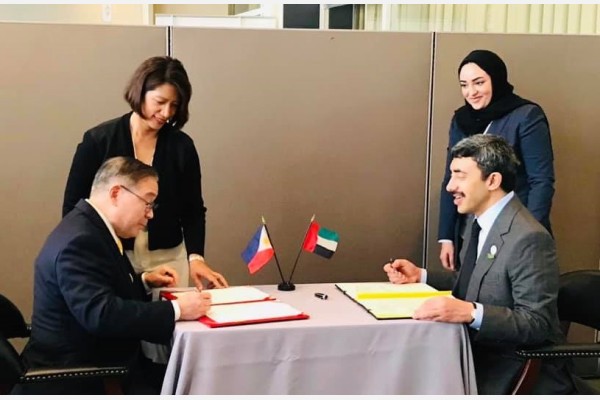
Dates:
Type of practice:
Latest content
Country:
Regions:
Sub Regions:
Summary
Bulk of the cases referred by the Philippine Department of Foreign Affairs (DFA) to the Inter-Agency Council Against Trafficking (IACAT) covered 2,429 likely trafficking-in-person and illegal recruitment victims from the Middle East Region. Among our Foreign Service Posts in the Middle East, our Foreign Service Posts in the UAE garnered the highest number of case referrals with 36 cases of human trafficking through illegal recruitment as of 2021. Trafficking victims from the UAE also form a big part of the repatriated Filipinos that the DFA facilitated in the past years. This is following recent observations that the UAE has become a transhipment point for Filipinos trafficked to other countries in the Middle East such as Syria, Egypt, and Lebanon, among others.
Thus, at the sidelines of the 74th UN General Assembly in New York in September 2019, Philippine Secretary of Foreign Affairs Teodoro L. Locsin, Jr and UAE Foreign Minister Sheikh Abdullah bin Zayed Al Nahyan signed the Memorandum of Understanding (MOU) between the Government of the Republic of the Philippines and the Government of the United Arab Emirates on Cooperation in Combating Human Trafficking. The MOU serves as an affirmation of the commitment of both countries to protect vulnerable migrant workers who are more prone to become victims of trafficking. It will deepen cooperation between the two countries allowing assistance in repatriation, platform for information exchange and sharing of best practices. Bilateral meetings have since been conducted for its implementation, continuing exchanges and views to improve cooperation against trafficking.
Organizations
Main Implementing Organization(s):
Detailed Information:
Partner/Donor Organizations:
Benefit and Impact
Thus, the MOU is expected to implement concerted efforts for the prevention and appropriate response to both victims and traffickers. Specifically, it shall: establish a mechanism for exchange of information; share best practices to combat trafficking; exchange skills and expertise related to prevention and awareness on trafficking; promote safety, human rights and the best interests of victims; provide widest cooperation and assistance in repatriation and rehabilitation; develop and utilize procedures for rescue, protection, recovery and repatriation of victims; and other forms of cooperation as agreed by the involved parties.